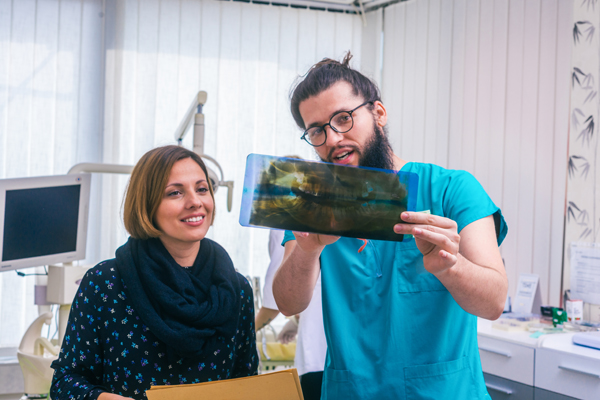Gum Disease: How to Reverse It and Get Healthy Gums Again

Anyone who has ever had gum disease knows that it can have serious consequences. If you have the signs and symptoms of this condition, you should act now and start treating it. In the early stages, it is possible to cure it and restore the full health of your gums. Waiting too long could have long-term, irreversible effects.
How gum disease starts
Like any other oral health issue, this disease begins gradually. Though genetics can be a factor, making people more prone to gum problems, poor oral hygiene is usually the cause. When a person does not brush or floss regularly, food particles will cause a buildup of plaque. This hardens and becomes tartar, leaving bacteria in pockets at the gumline and between teeth. The bacteria will infect the gums, making them inflamed. Eventually, the gums will pull away from the teeth, putting the person at risk of suffering tooth loss.
Never delay
People often delay treating the disease, thinking it will improve on its own. The smartest plan is to improve oral hygiene right away and seek a dentist’s help to overcome the condition. Early-stage gum disease, called gingivitis is treatable and reversible. However, if the disease progresses into periodontal disease, no intervention can fully reverse it.
Brush often
Brushing with fluoride-based toothpaste is one of the most effective ways to turn back gum disease. People of all ages should brush at least twice a day with a soft-bristled brush for about two minutes every time. Make sure to get every part of every tooth, including at the gumline. It is helpful to brush before bedtime, at the start of the day, and after mealtimes.
Do not forget to floss
Another good way to handle gum disease is by flossing. This should occur daily, though flossing too frequently can damage the gums. Proper flossing dislodges food particles from in between teeth. This discourages the growth of bacteria and the formation of plaque and tartar. With flossing, the gums should remain pink and firm.
Visit the dentist
Sometimes, at-home care is not going to be enough to revive gum health. For more advanced gingivitis, the patient needs treatment from a dentist. The dentist will first examine the patient to see the extent of the damage. The hygienist will do a thorough cleaning, which will include scraping off any plaque and tartar. The hygienist may also measure gum density. More in-depth treatments for gum disease include root planing and scaling.
You can revive your gums and avoid severe problems
It is bad enough having swollen gums and bleeding, but more serious issues can result from gum disease. Without the right care and treatment, you could lose teeth or even have an infection spread to your heart. The good news is that you can improve your brushing and flossing to reverse the effects of this condition. Your dentist will also recommend different approaches to help you regain your oral health. Make an appointment today if you are concerned about the way your gums look and feel.
Request an appointment here: https://www.southlakedentalcare.com or call SouthLake Dental Care at (904) 512-3054 for an appointment in our Middleburg office.
Check out what others are saying about our dental services on Yelp: Gum Disease in Middleburg, FL.
Recent Posts
Gum disease is very serious, and without treatment, it can be detrimental to one's overall health. The severity of the infection determines the treatment options. When experiencing any signs of gum disease, it can be helpful to review the following information to prepare for what to expect from the treatment process.Outlined below are four different gum…
Flossing is an important component of preventive dentistry. Flossing must always accompany daily brushing. This may seem insignificant. After all, it involves running a line of floss through the thin gaps of your teeth. Even so, flossing benefits your teeth. If you want to know how valuable flossing is for preventive dentistry, here are the…
An immediate visit to an emergency dentist becomes necessary when severe tooth pain or infection disrupts your comfort and overall quality of life. This dental professional provides immediate evaluation and relief, particularly when a root canal is required to preserve a damaged or infected tooth. Root canal treatment from an emergency dentist can help alleviate…
Seeking a straighter smile often begins with a visit to a cosmetic dentist. These professionals offer advanced teeth straightening options that improve alignment while also considering the appearance of the entire smile. Whether correcting mild crowding or closing noticeable gaps, a cosmetic dentist evaluates structure, bite, and facial balance to create a personalized plan that…


